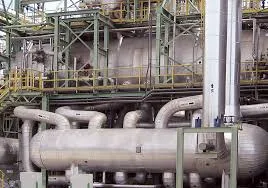Boiler Solutions for Efficient Bitumen Emulsification Processes and Applications
The Role of Boilers in Bitumen Emulsification
Bitumen emulsification is a crucial process in various applications, such as road construction, waterproofing, and the production of asphalt mixes. The quality of the emulsified bitumen significantly influences the performance and durability of asphalt pavements. Central to this process is the boiler, which plays a vital role in generating the necessary heat required for emulsification. This article delves into the importance of boilers in bitumen emulsification, their operational principles, and the nuances involved in selecting the right boiler for this purpose.
Understanding Bitumen Emulsification
Before exploring the role of boilers, it is essential to understand what bitumen emulsification entails. Bitumen, a viscous and sticky form of petroleum, is generally heated to reduce its viscosity for easier handling and application. Emulsification involves mixing bitumen with water and an emulsifying agent to create a stable mixture that can be easily spread and applied. This emulsion is typically used in road construction to enhance adhesion, flexibility, and thermal resistance.
The Importance of Temperature Control
Temperature management is crucial in the emulsification process. Bitumen needs to be heated to a specific temperature range, commonly between 160 and 180 degrees Celsius, before emulsification. The role of a boiler, therefore, extends beyond mere heat generation; it also involves maintaining a consistent temperature to ensure the emulsification process's efficiency.
An appropriately controlled heating environment allows for a balanced interaction between the bitumen, water, and emulsifying agents. If the temperature is too low, the bitumen will not properly interact with the emulsifying agents, leading to a weak emulsion. Conversely, excessive heat can degrade the bitumen and affect the emulsion's stability.
Types of Boilers Used in Bitumen Emulsification
Several types of boilers can be utilized in the emulsification process, each with its unique advantages and disadvantages.
1. Fire-tube Boilers These are widely used due to their simplicity and efficiency. In fire-tube boilers, hot gases pass through tubes submerged in water, heating it to generate steam. This steam can then be used to heat bitumen in a jacketed tank, providing even temperature distribution.
boiler for bitumen emulsifying

2. Water-tube Boilers These systems circulate water through tubular structures that are exposed to heat from combustion gases. Water-tube boilers are generally more efficient and can produce steam at higher pressures, making them suitable for large-scale emulsification operations.
3. Electric Boilers For smaller operations or where environmental regulations are strict, electric boilers present a cleaner alternative. They provide precise control over heating, reducing the risk of overheating and ensuring a consistent emulsification process.
Factors to Consider When Choosing a Boiler
When selecting a boiler for bitumen emulsification, several factors must be considered
- Capacity and Output The boiler should be capable of meeting the demands of the emulsification process. Assessing the required heating capacity and output is crucial to ensure operational efficiency.
- Fuel Type The choice of fuel can dramatically impact operational costs and environmental considerations. Options range from natural gas and oil to renewable energy sources.
- Efficiency and Control High-efficiency boilers can reduce fuel consumption and operational costs. Additionally, precise temperature control mechanisms are essential for maintaining optimal emulsification conditions.
- Maintenance and Reliability Regular maintenance is vital for the longevity of the boiler. Selecting a model known for reliability can minimize downtime and ensure consistent production.
Conclusion
The integration of a suitable boiler in the bitumen emulsification process is an integral part of producing high-quality emulsions that meet construction standards. By understanding the various boiler options and considering essential factors, operators can enhance their emulsification processes, leading to better-performing asphalt applications. Investing in the right boiler ultimately contributes to the longevity and reliability of construction projects, ensuring safe and durable infrastructure development.
-
Top Industrial Boiler Contractors Supplier & Factory Quality Products & ServicesNewsJun.10,2025
-
Panasonic Hot Water Boiler - Reliable & Energy Efficient Heating SolutionNewsJun.10,2025
-
Pennco Steam Boilers High-Efficiency & Durable SolutionsNewsJun.10,2025
-
Industrial Boiler & Mechanical Solutions Efficient Industrial Heating SystemsNewsJun.10,2025
-
Panasonic Hot Water Boiler - Energy-Efficient, Reliable Heat SolutionNewsJun.10,2025
-
Premium Power Plant Steam Boilers High Efficiency & ReliabilityNewsJun.09,2025

